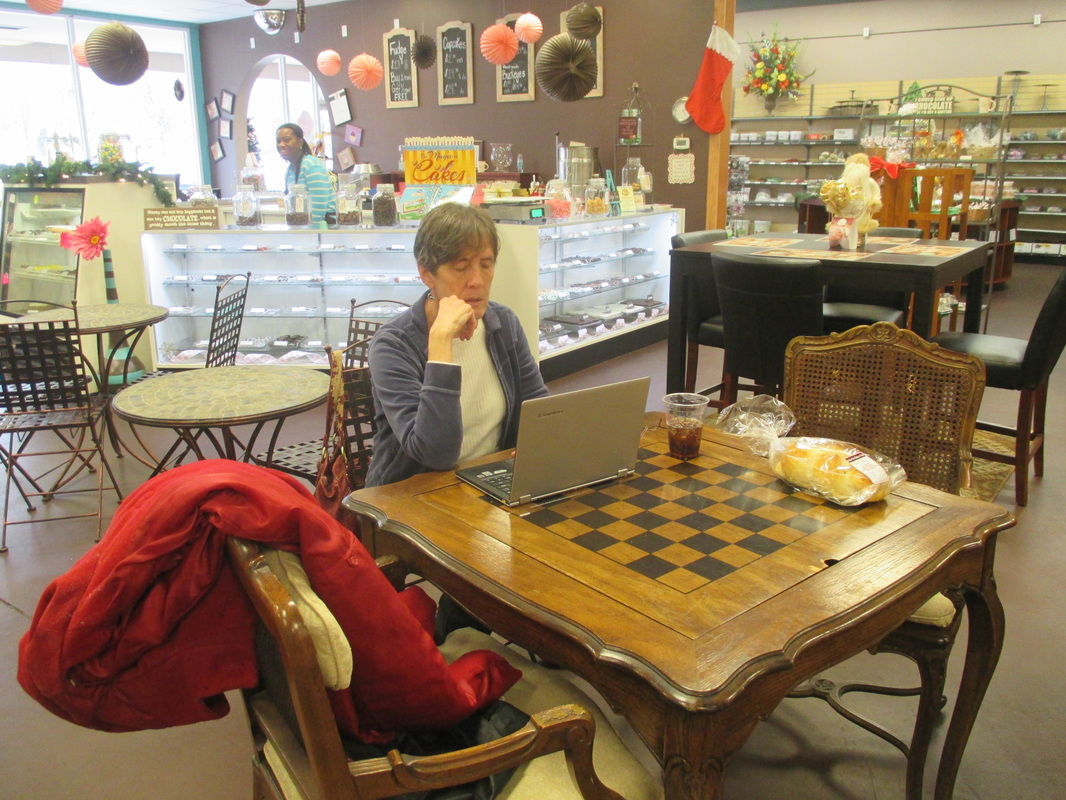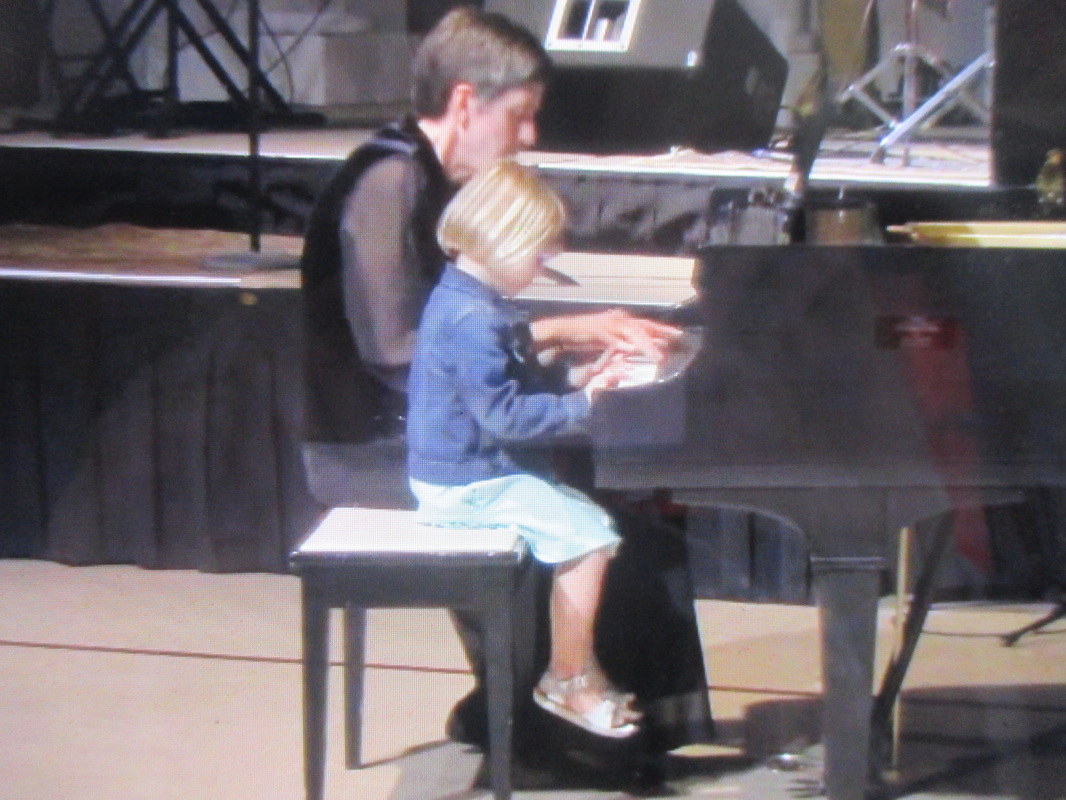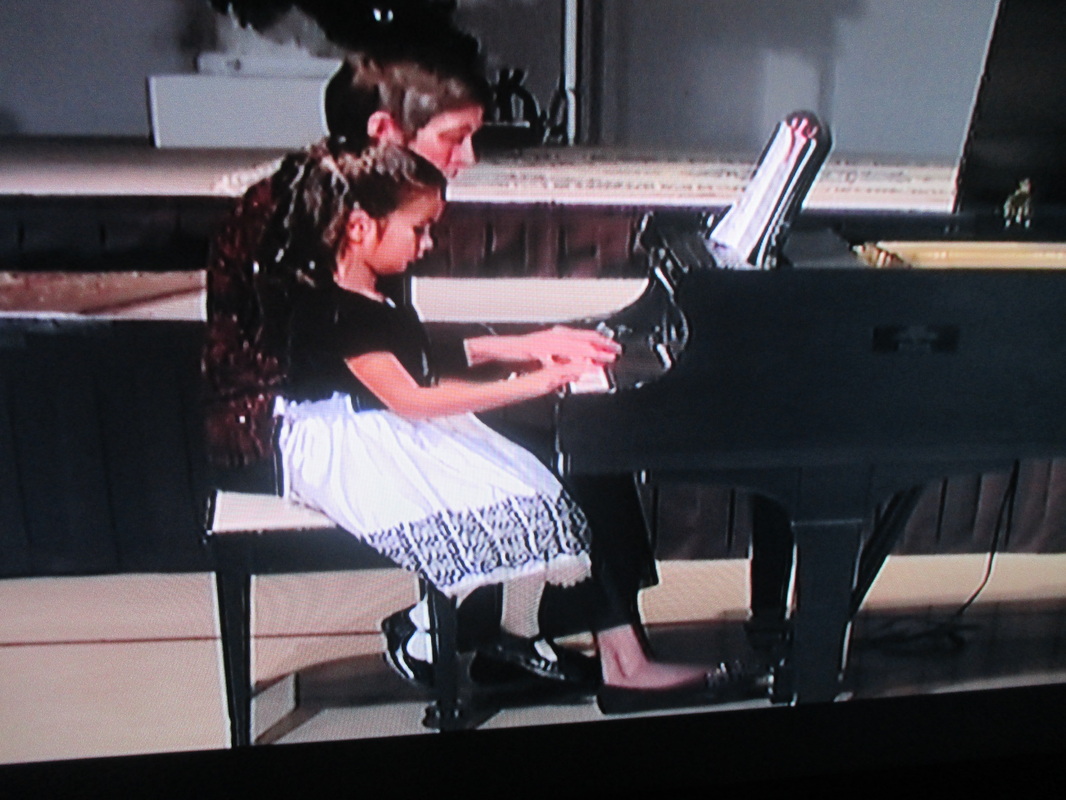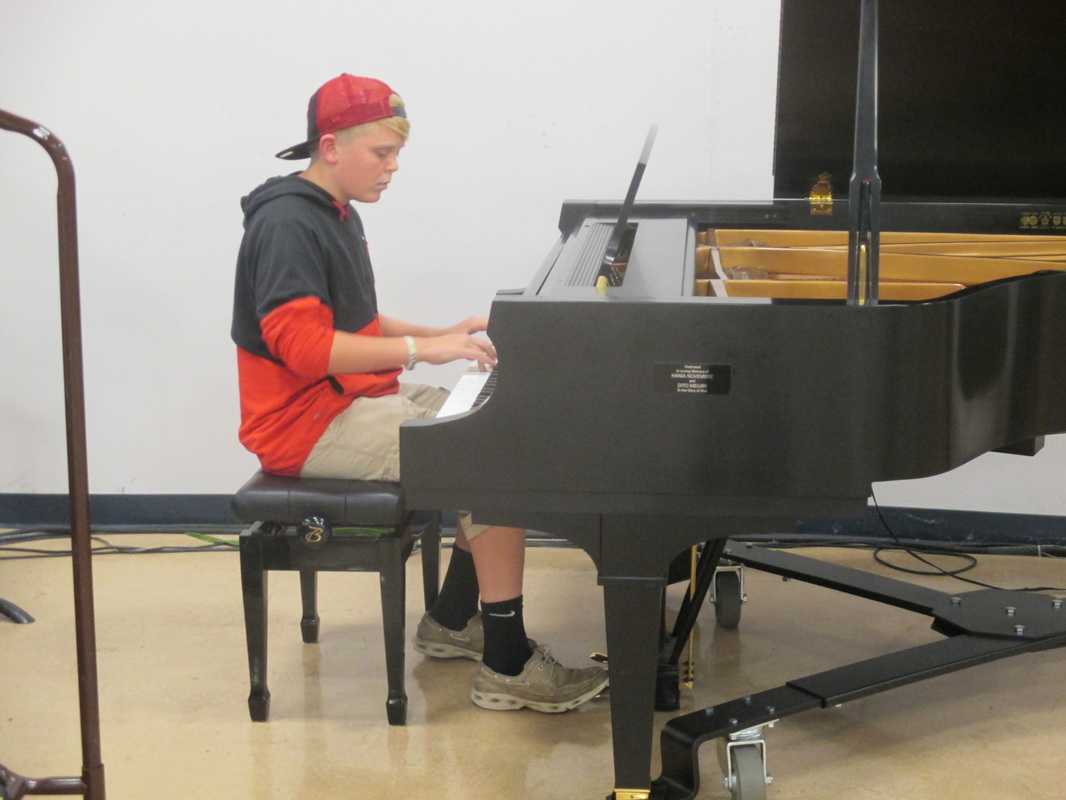|
Last week when my daughter was visiting and I told her that I had a piano recital coming up this week she laughed, "Again? What, do you have recitals every week?" Actually, no, I have student recitals three times a year. But sometimes its seems like every week. I expect that's because, even though we only perform three times a year, we're always preparing for the recitals. As soon as one recital is finished each student is given his or her piece for the next recital and we get right to work. So for my students and for me a performance is always there on the horizon and it gets closer week by week. I'm a performance-based teacher. My philosophy is that we learn to play to perform not only for others but for ourselves, too - after all, who feels like playing, even for themselves, if the playing doesn't sound beautiful? - and so we're always preparing for a performance. Also this way we're always working towards a goal. In truth, it's me who needs a goal. It keeps me organized and focused. Otherwise I think I'd have a hard time teaching - I truly wouldn't know when a piece is finished. I think I would be like the old sculptor who, when asked once how he knew when a piece of his art was finished he answered, "I never know when it's finished. I just keep polishing and polishing until they come and take it away." I think it's the same with a piece of music. We just keep practicing and practicing, polishing and polishing our pieces until it's time for us to perform them at the recital. And I feel like you don't really own a piece until you've performed it. You can work and work on a piece, but once you've performed it, then its yours. Not that performing is easy. Playing the piano doesn't come easily for most of us. As one young student once observed after a few piano lessons: "This isn't as easy as it looks." It's a problem of having only ten fingers to deal with all those keys. I sometimes wonder how anybody learns to play the piano. And yet we do. I've taught manys the four- and five-year-old. I've even had a few three-year-olds.
But then, of course, performing - as opposed to just playing - is a whole 'nother game. Still, as I always remind my nervous students - and my nervous self - that a tangle or two in the middle of performance does not spoil a piece that's beautifully played as a whole. I also remind us all of what happens if one messes up one's piano recital: nothing. (The same is not necessarily true if one is performing brain surgery. Even though playing a difficult piece well may require an equal amount of skill and dexterity. In fact, I have a very able student who has told me that he wants to be a brain surgeon when he grows up. I've decided that if I ever need brain sugery 20 years from now I'm definitely going to him). So anyway, if we don't perform our pieces to perfection at the recital, we still have the rest of our lives to play our pieces whenever we want. We'll be people who can play the piano. We'll have music in our lives and when we grow up it we'll want our children to have music in their lives. And that's why we take piano lessons, right?
4 Comments
Romaine
12/3/2014 04:18:11 am
Good Luck with your recital tomorrow. I wish I could be there to see and hear it!
Reply
Thanks, Romaine@
12/3/2014 09:16:57 am
Reply
Mary Jane
12/3/2014 05:49:26 am
That was so well written. I loved the message.
Reply
Patti
12/3/2014 09:18:09 am
Thanks, MaryJane!
Reply
Leave a Reply. |
"Tropical Depression"
by Patti Liszkay Buy it on Amazon: https://www.amazon.com/dp/B0BTPN7NYY "Equal And Opposite Reactions"
by Patti Liszkay Buy it on Amazon: http://amzn.to/2xvcgRa or from The Book Loft of German Village, Columbus, Ohio Or check it out at the Columbus Metropolitan Library
Archives
July 2024
I am a traveler just visiting this planet and reporting various and sundry observations,
hopefully of interest to my fellow travelers. Categories |










 RSS Feed
RSS Feed